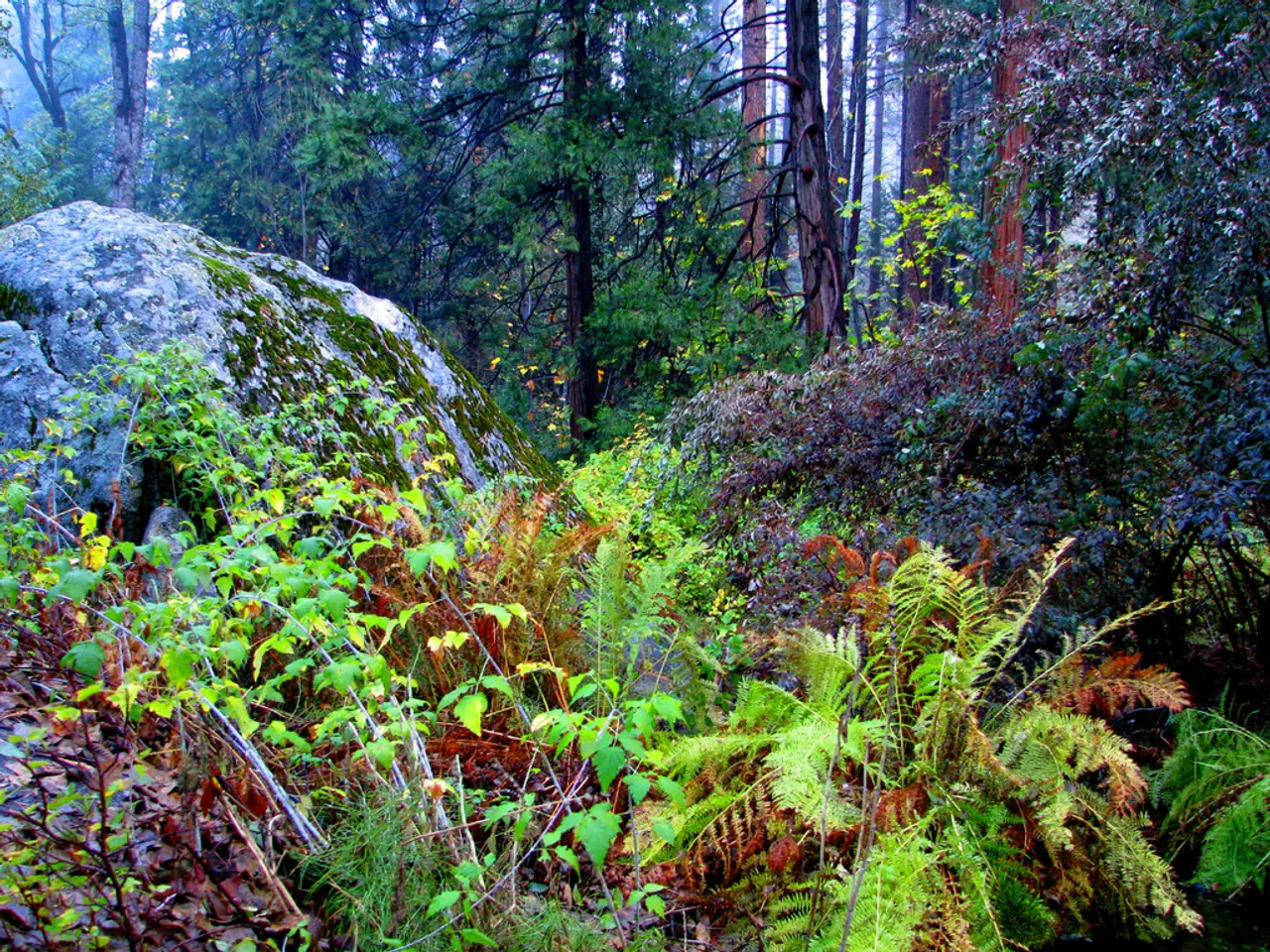Lithium exploration proposed by mineral oil company in Thuringia - Key inquiries surround the project
In the heart of Europe, Germany is exploring potential lithium deposits, a crucial component for the production of batteries used in electric vehicles and renewable energy storage. The main areas of interest are the Thuringian Basin and the North German Basin.
Esso, a global energy company, has submitted an application to conduct initial investigations in parts of Thuringia for potential lithium deposits. The company plans to search for lithium in the districts of Kyffhäuserkreis and Saale-Orla-Kreis, as well as in the region referred to as "Thuringia-North," which includes the Eichsfeld, Wartburgkreis, Unstrut-Hainich-Kreis, and the district of Gotha.
The decision on licenses for both investigations and extraction lies with the state agency. However, a decision on when the first investigations will begin has not yet been made, as the licensing procedure is ongoing. If a permit is issued by the state agency, the municipalities must accept it, but they can submit statements and raise concerns during the licensing procedure.
Germany's demand for lithium is estimated to be around 170,000 tonnes by 2030. If successful, the potential lithium deposits in Thuringia could contribute significantly to meeting this demand.
Esso has stated that, if a permit to extract lithium is granted, fracking would not be used. Instead, brine water would be pumped from thousands of meters deep, the lithium filtered out, and then returned. This method is less controversial, but concerns among affected communities remain.
These concerns include potential negative environmental impacts, such as a possible drop in the groundwater level, and the fear of being bypassed in decision-making processes. To address these concerns, the Association of Municipalities and Towns advises all affected municipalities to collect and provide data as early as possible to make their own concerns and needs clear in good time.
In addition to the potential lithium deposits in Thuringia, Germany may have significant deposits of lithium bound in deep water layers in Northern Germany, which could be accessed via old gas drilling holes.
Furthermore, scientists at Jena University are researching alternatives to lithium batteries using wood, with all components of this battery type potentially sourced in Thuringia. This development could reduce Germany's reliance on lithium and its associated environmental impacts.
The state agency emphasizes that it is initially not about the concrete extraction of lithium, but only the search for it. This approach aims to alleviate some of the concerns surrounding the potential environmental impacts and decision-making processes.
As the licensing procedure continues, it is crucial for all parties involved to work together to ensure a balanced approach that considers both the potential benefits of lithium extraction and the concerns of the affected communities.
Read also:
- Stone mining has transformed the once renowned 'Sada Pathor' into a desolate, post-apocalyptic landscape.
- The Developmental Journey of Digital Supply Chains
- In the Heart of Soho, Manhattan, a New Brewery Emerges Underground
- Financial regulatory body OCC imposes Anti-Money Laundering (AML) disciplinary action against Wells Fargo.








